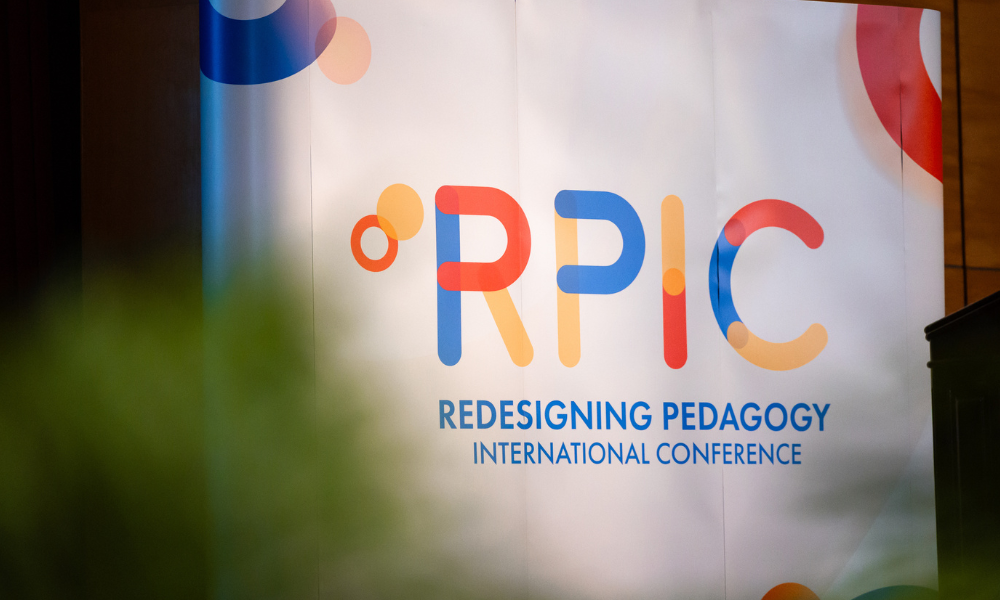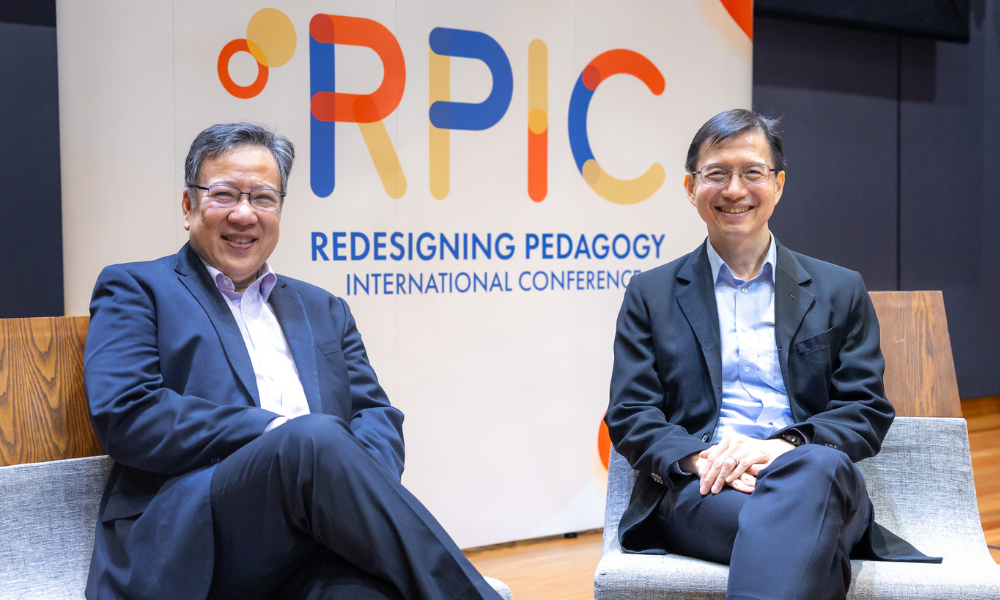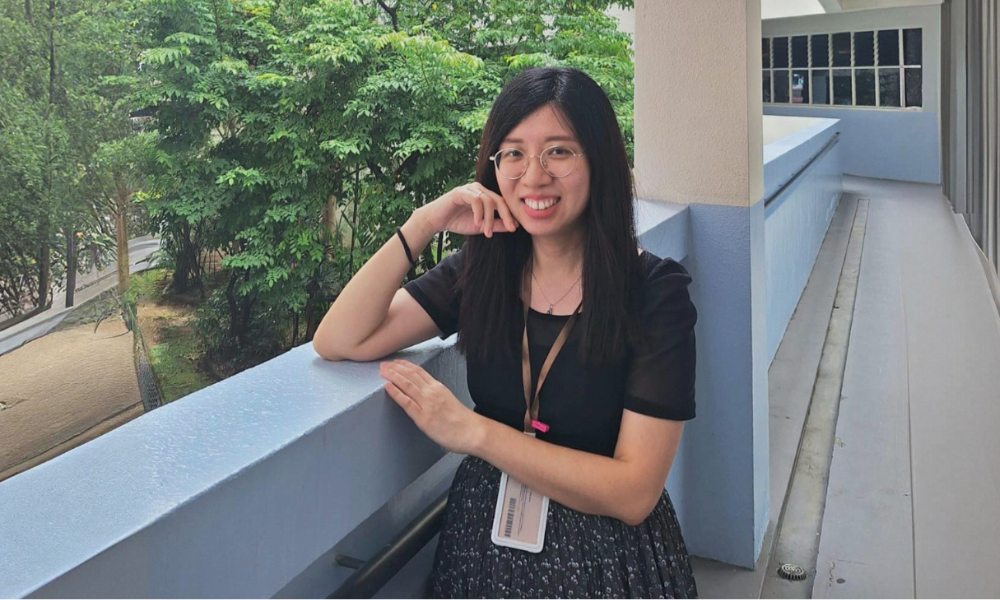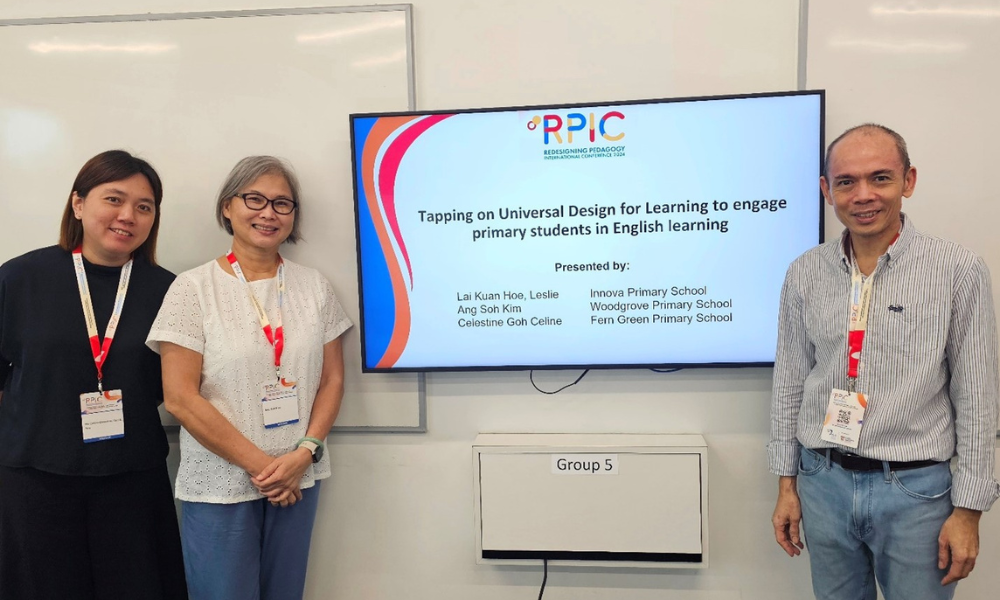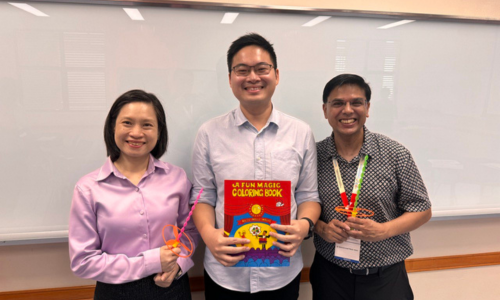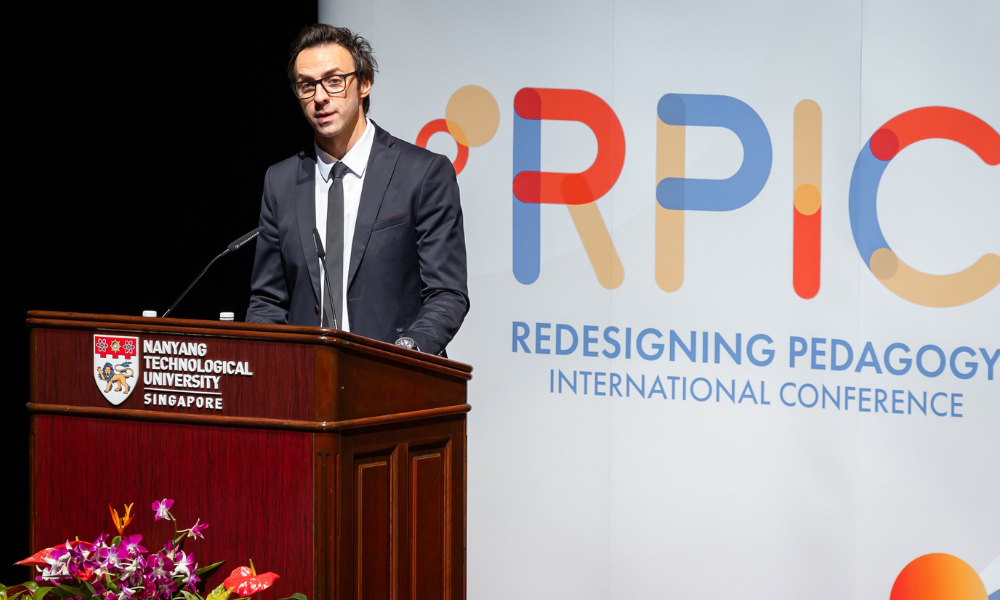Research as Professional Growth
Just sharing good practices among themselves is not enough for teachers at Yu Neng Primary School. There, every teacher is encouraged to become involved in action research, for the benefit of their pupils.
Teachers as Leaders
All teachers are leaders in the classroom: This is a belief that Interim School Staff Developer Mdm Zuraida Akbar shares with many teachers at Yu Neng Primary School.
What they do in the classroom matters, and their central question is always, “How would my pupils benefit from what I’m doing right now?” Because of this belief, the teachers get together and share their good practices.
But Zuraida sees a need to go beyond such sharing. “We always go by tests results, our gut feel, and our conversations,” she says.
“Now we do research. With action research, we go a step further. When we say that this is the way to go, we are now backed by data – it is data-driven.” This allows the teachers to better understand their pupils’ needs.
Empowering Teachers
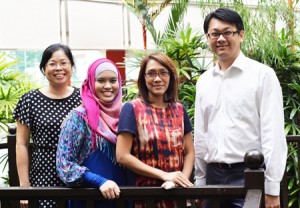
(From left) Pauline Ng, Eymani Helmi, Zuraida Akbar and Nicholas Tan believe that research is integral to a teacher’s professional growth
The school adopts action research as the collaborative tool in their Professional Learning Community (PLC). Within the PLC, teachers decide what issues are pressing and should be looked into. From there, they then propose their research ideas.
The reason for giving teachers such autonomy to decide is simple: They are being groomed as teacher-leaders.
“That it is not dictated is something that makes us more independent as teacher-thinkers. It really makes us think,” shares teacher Mdm Eymani Helmi.
When it comes to professional development, going for courses may be helpful but research have the potential to empower teachers to become more self-directed in seeking improvement in their teaching practice.
“Engaging in research brings us to a different level – we are our own boss in our teaching and learning,”explains Eymani.
For teachers, being able to take charge of their professional growth and learning not only helps their own development, but their pupils’ too. “We believe that when our teachers grow professionally, our pupils will definitely benefit from it,” says Zuraida.
Support from School Leaders
Getting teachers involved in action research is something that aligns with one of Yu Neng Primary’s strategic thrusts, which is “Growing Staff in Innovative Leadership”, says Primary 4 Level Facilitator Mrs Pauline Ng.
And it is through the strong support provided by their school leaders that made action research possible for teachers.
But engaging in research isn’t always a comfortable idea for some teachers. “I always believe that without knowledge comes uncertainty,” says Yu Neng’s Vice-Principal, Mr Nicholas Tan.
To help them ease into the idea of research, he brought in a research expert from NIE, Dr Hairon Salleh, to conduct introductory courses in action research for teachers. The teachers’ misconceptions of research were addressed during the course and it also helped boost their confidence when they embark on their projects.
Engaging in research brings us to a different level – we are our own boss in our teaching and learning
– Eymani Helmi, Yu Neng Primary School
A challenge arises, however, when it comes to data analysis because not all teachers are equipped with statistical knowledge and skills. To address this, some teachers in Yu Neng conducted in-house workshops for their colleagues.
These teachers are natural statisticians who often lend their analysing expertise to colleagues as and when they need it, says Mr Tan. “They are very comfortable in handling data so they are there to support them and analyse data, and then give it back to the research group.”
Such transference of skills is aplenty among the different research groups, which helps foster teacher bonding. Teachers are also encouraged to share their research findings.
“We have a sharing day within the school,” says Pauline. “We also encourage teachers to share beyond the school, in cluster events and international conferences.”
“I feel it’s very important that we must celebrate successes,” says Mr Tan. “We may not see overnight that the teachers become very competent in research, but I always feel that we must be there to encourage them and to celebrate together what they have found, and let them report their findings.”
And with a genuine passion to help pupils and the strong school support, these teachers are motivated to further explore innovative teaching strategies using research.

